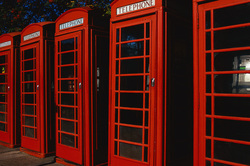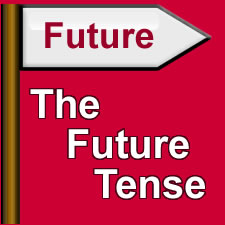Past Simple and Past Continuous

Practice the grammar of the UNIT 1 for the exam of the first evaluation. Below you can find various exercises on the use of Past Simple (-ed or the second column of the irregular verbs) and Past Continuous/Progressive (was/were + ...ing).
Exercise 1
Exercise 2
Exercise 3
Exercise 4
Exercise 5
Exercise 6
The following video (which is in Spanish!) will help you understand the difference between these two tenses.
Exercise 1
Exercise 2
Exercise 3
Exercise 4
Exercise 5
Exercise 6
The following video (which is in Spanish!) will help you understand the difference between these two tenses.
Talking about the future

There are different ways of expressing future in English.
will
We use will to talk about plans decided at the moment of speaking (spontaneous decisions).
going to
We use going to to talk about plans decided before the moment of speaking.
present continuous
We can also use the present continuous to talk about future plans. We usually use it when the plan is an ‘arrangement’ – more than one person is involved and we know the time and place.
Have a look at this nice explanation, too.
Now you can check your understanding in the following exercises:
Exercises 1
Exercise 2
Exercise 3
Exercise 4
will
We use will to talk about plans decided at the moment of speaking (spontaneous decisions).
- I forgot to phone my mum. I’ll do it after dinner. He decides to phone his mum when she is speaking – she didn’t have a plan.
- I can’t decide what to wear tonight. I know. I’ll wear my black dress.
- There’s no milk in the fridge. I’ll buy some when I go to the shops.
going to
We use going to to talk about plans decided before the moment of speaking.
- I’m going to phone my mum after dinner. I told her I’d call at 8 o’clock. He decided to phone his mum before he speaks – he already had a plan.
- I’m going to wear my black dress tonight. I need to pick it up from the cleaners.
- I know there’s no milk. I’m going to get some. It’s on my shopping list.
present continuous
We can also use the present continuous to talk about future plans. We usually use it when the plan is an ‘arrangement’ – more than one person is involved and we know the time and place.
- I’m meeting Jane at 8 o’clock on Saturday.
- We’re having a party next Saturday. Would you like to come?
- Are you doing anything interesting this weekend? We often use the present continuous to ask about people’s future plans.
Have a look at this nice explanation, too.
Now you can check your understanding in the following exercises:
Exercises 1
Exercise 2
Exercise 3
Exercise 4
First and Second Conditional

FIRST CONDITIONAL
IF / UNLESS + present simple, will + infinitive
If it rains, we will stay at home.
He will arrive late unless he hurries up.
If you study hard, you will pass the exam.
SECOND CONDITIONAL
IF / UNLESS + past simple, would + infinitive
If I had more time, I would travel more.
If I were you, I would study for the exam.
Exercise 1
Exercise 2
Exercise 3
Exercise 4
Exercise 5
IF / UNLESS + present simple, will + infinitive
If it rains, we will stay at home.
He will arrive late unless he hurries up.
If you study hard, you will pass the exam.
SECOND CONDITIONAL
IF / UNLESS + past simple, would + infinitive
If I had more time, I would travel more.
If I were you, I would study for the exam.
Exercise 1
Exercise 2
Exercise 3
Exercise 4
Exercise 5

